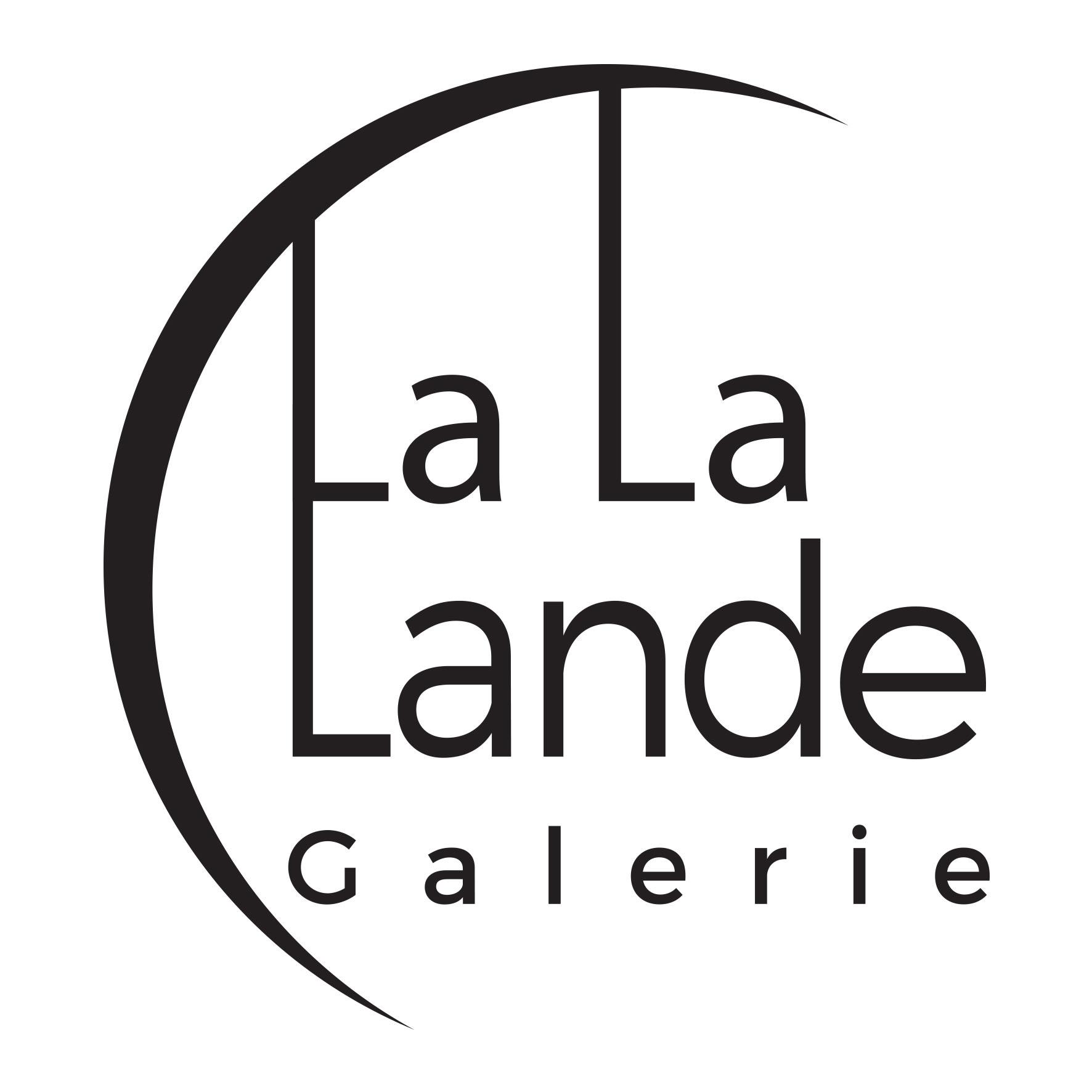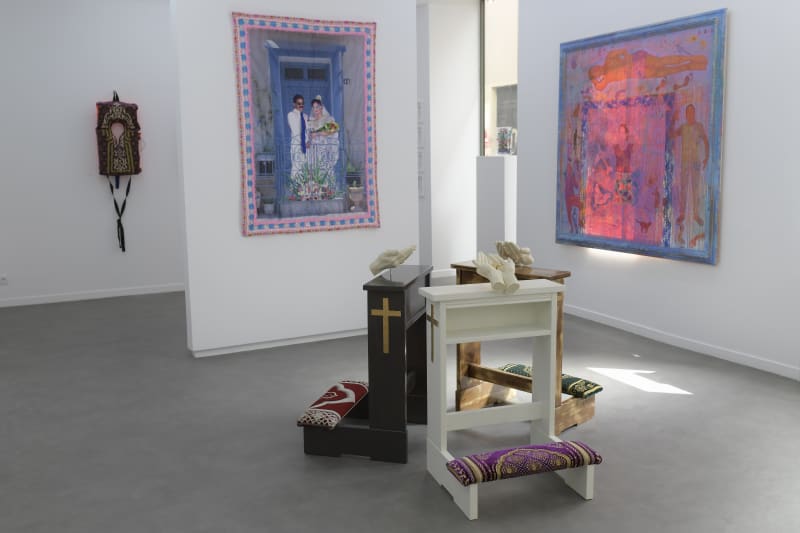With the works of Aïcha Snoussi, Aïcha Filali, Alireza Shojaian, Béchir Boussandel, El Mehdi Largo, Eser Gündüz, Halim Karabibene, Rayan Yasmineh, Sarah Navasse, SIMAREK, Slimen Elkamel.
"Act in your place and think with the world" said poet and thinker Édouard Glissant. To do so, you must first have examined its state. Before acting, the artist thinks, observes the world, and notes that its places are in all their states, stricken by a dichotomy, on either side of the shores of the Mediterranean Sea, between North and South, between East and West. The sea is a space that both separates and brings together. Should we perceive its nostalgia and reverie in dreamy, brightly-colored acrylic paintings, or experience it as the transitional zone of exile and destitution, as tragic snapshots are revealed in black ink, or as the two saving promises of a floating bra and a prayer rug are superimposed? Territories are reappropriated. In rural lands, bodies are dispossessed and enclosed in the narrow frame of the canvas, or lost in the monotony of repetitive labor and an infinite field. The urban environment recovers its exogenous materials to "recycle" them, just as the exile reintegrates socially into the cycle of a new country. A land of immigration thus becomes a land of rebirth and renewal, through the creolization and blending of all cultures in contact.
At the crossroads of old and new, hieratic traditions - marriage, quilted fabric, the blue of customary doors and the white of marble - are profaned by the modernity of a virtual photo-montage. On the other hand, a collage of words or a portrait on wood make the state of progressivism, blurring the boundaries of gender, between femininity and masculinity, making sexual minorities major, and transgressing the norms established by dominant thought. These multiple, erratic regions influence flesh and skulls, which become territories in themselves. Here we see the language that the body has developed to better inhabit its environment, and there we see the archaeological traces of words that speak of the disarticulated body, while elsewhere utopias are mapped and architected, and a surrealism probes the expression of the spirit, allowing it to abolish borders and reside in the land of the imaginary, long enough to renew the real.
Aurélien Simon





